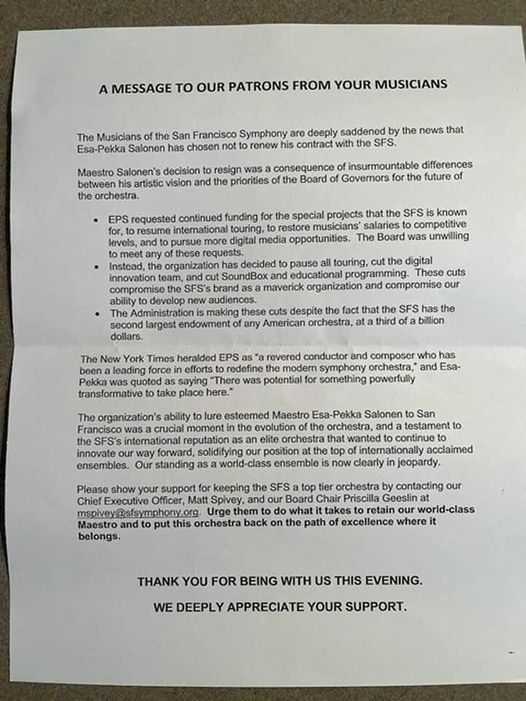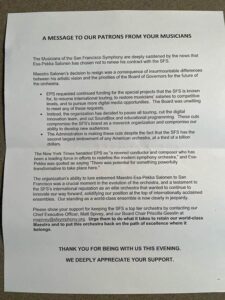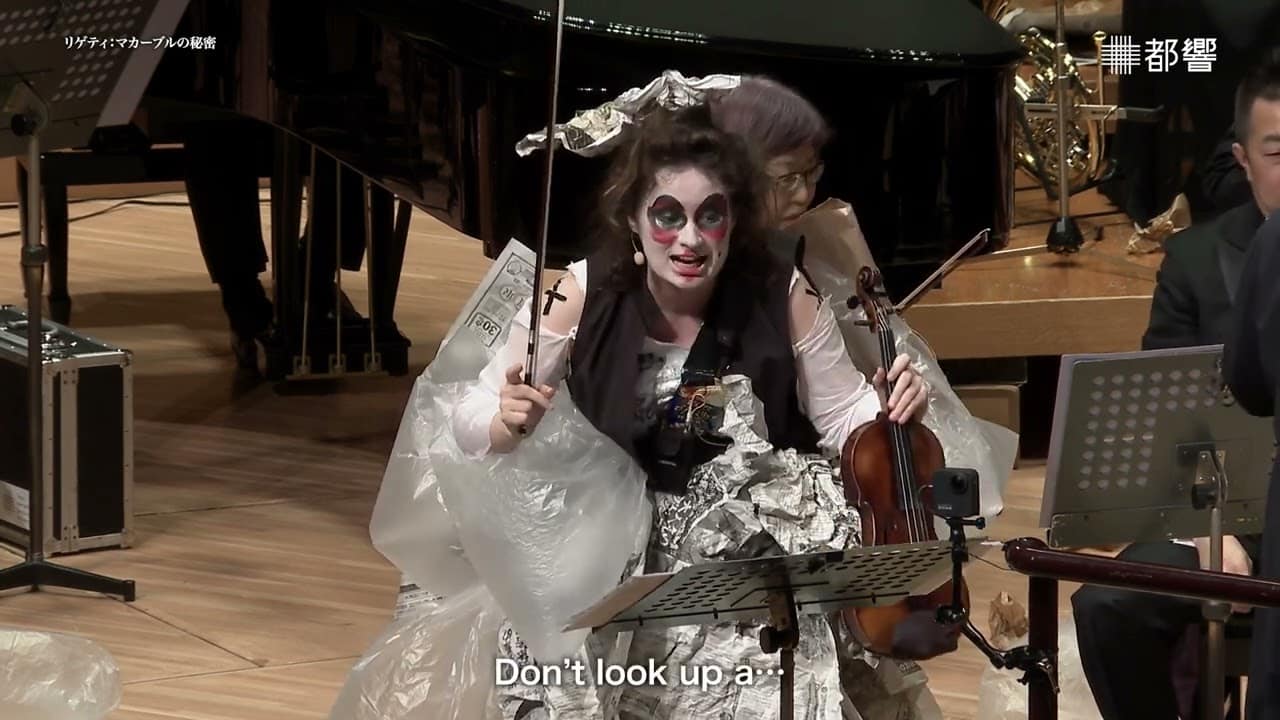SanFran musicians go leafletting their audience
OrchestrasDismayed and confused about the departure of music director Esa-Pekka Salonen, musicians of the San Francisco Symphony are distributing leaflets to concertgoers.
Image courtesy of Janos Gereben.







Comments